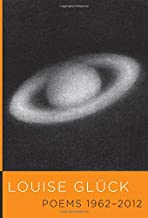The House on Marshland, Louise Gluck 1975
Louise Gluck received the Nobel Prize for Literature this month, the first poet to receive that honor in nine years and the first American woman since Toni Morrison 27 years ago. I was especially excited because my life seems to have tangentially touched her’s in so many ways—-Vermont where she was the poet laureate from 1994-1998, Cambridge where we both live, and Yale where she now teaches and where my younger daughter was educated. I’ve read two of her 11 books of poetry and heard her read at the Harvard Book Store a few years ago where I bought her ‘Collected Poems 1962-201’2 from which I chose this volume written amazingly 45 years ago.
The poems contain her central themes—landscape, time, death and especially the deaths of those we loved—and her characteristic use of language, the sudden shifts in frame of reference and the telling simile and metaphor. Trees hold a central place in these poems—apples, pears, and plums in orchards and beeches, birches, firs, willows, shad-blow—creating the “green poisoned landscape’ which provides the lens through which she saw the season, the early spring ‘through sunlight pure as never afterward’. Even her most beautiful poems have some element of decay and loss as time is the omnipresent backdrop to all human activity. The Nobel citation reads: “her unmistakable poetic voice that with austere beauty makes individual existence universal”.
Read any of her work and sit quietly with that voice to enrich your ability to see the world and your place in it.



